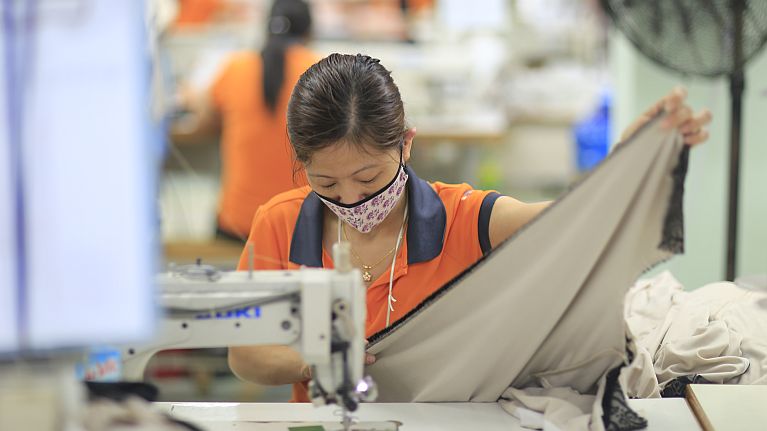Skills development
Future of Work in Textile and Clothing: Forecasting and Developing Skills in Viet Nam to Advance Decent Work and Productivity in the Sector
The project supports the Government, employers’ and workers’ organizations to anticipate and address future skills needs in the garment sector in Viet Nam.

Main target groups
- Ministry of Labour, Invalids and Social Affairs (MOLISA), Directorate for Vocational Training and Education
- Viet Nam Chamber of Commerce and Industry (VCCI)
- Viet Nam General Confederation of Labour (VGCL)
- Viet Nam Textile and Apparel Association (VITAS)
- Textiles and garment enterprises and workers
- Vocational education and training institutions
Background
Viet Nam is one of the biggest exporters of garment goods in the world. The textile and garment sector which has become one of the largest manufacturing sectors and plays an important role in driving socio-economic development and job creation, fostering labour mobility, and enabling economic restructuring in the country.Despite of the long-standing growth and development, there is a lack of skills needed to drive the industries forward in the midst of digital revolution, globalisation, climate change, demographic shifts. The COVID-19 pandemic has accelerated the impact of these drivers of change, leading to the bigger need for skills forecasting, and developing current and future skills for workers to ensure that the industries become more resilient, competitive, and sustainable, improving the prospect for creating more and better-quality jobs. These are essential for promoting decent work for all workers and for sustainable and inclusive growth in Viet Nam.
Project objectives
The project aims to support national partners in Viet Nam in advancing decent work and productivity in textile and clothing sector through forecasting and developing skills in Viet Nam in line with priorities established by the vocational education and training strategy and the development strategy for textile and garment and footwear industries.The overall objective of the project is to contribute to the Sustainable Development Goal 8 (promoting inclusive and sustainable economic growth, employment and decent work for all) through skills needs anticipation and development.
Project outcomes
- Tripartite constituents and other stakeholders in Vietnam have the knowledge to develop skills strategies and programmes for the textile and clothing sector in the context of recovery from the COVID-19 crisis, automation and digitalization, climate change, globalization and demographic shifts.
- The capacity of tripartite constituents is strengthened for the development and implementation of a skills strategy for the textile and clothing sector in Viet Nam.
- Institutional and legal framework supporting sector-based approaches to skills development in Viet Nam are strengthened, allowing for a policy uptake of industry's needs
- Project outputs are disseminated including informing the development of skills strategies in other Asian producing countries to foster the sustainability of its results.
For further information please contact:
Ms Nguyen Ngoc DuyenNational Project Coordinator
Email: duyen@ilo.org